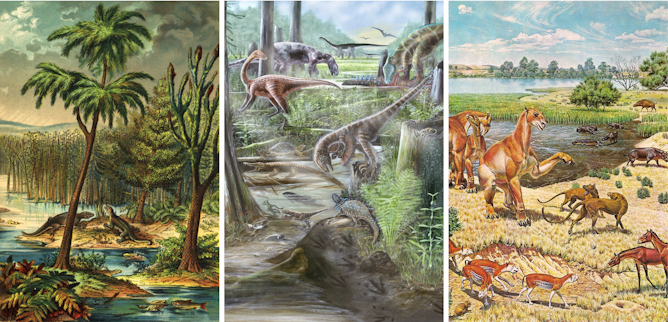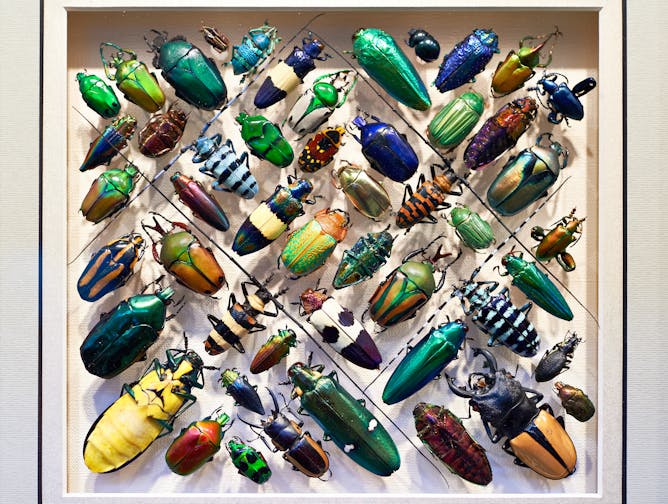|
|
|
Editor's note
|
|
There had been rumblings for days and, yesterday, a group of seven Labour MPs quit the party to strike out alone as the Independent Group in parliament. Karl Pike explains what drove the group to take this extreme step at such an important moment for the nation. It’s inevitable that comparisons will be made with the ill-fated SDP, but Richard Carr notes that electoral success is not the only measure. British politics is stuck and he wonders
if this shake up could at least throw up some fresh thinking.
From tears and sadness to a loss of pleasure in activities, it can be quite easy to spot when somebody we know gets depressed. However, up to 40% of people with depression are able to completely hide their symptoms, appearing happy to others and going about their lives as usual. Olivia Remes explains what researchers know about such “smiling depression”, and warns it puts people at particularly high risk of suicide.
Since the explosion of life that emerged after the dinosaurs went extinct, the average number of land animals found in the world’s various ecosystems has been stable, according to new research from Roger Close. Here he explains how that challenges the common belief among many scientists that this local biodiversity is always rising. The impact of humans, however, could change everything. Insect populations could “vanish within a century”
according to recent reports, but what would that mean for the rest of nature? Stuart Reynolds explains.
|
Laura Hood
Politics Editor, Assistant Editor
|

|
|
Top story
|

The seven MPs who have quit to form the Independent Group.
PA/Stefan Rousseau
Karl Pike, Queen Mary University of London
A group of MPs has cited Brexit, anti-semitism and Corbynism more broadly as motivations to leave.
|

Putting on a mask doesn’t make depression any easier.
Alyssa L. Miller/Flickr
Olivia Remes, University of Cambridge
Almost half of people with depression don't appear as sad as you'd expect, but are at a particularly high risk of suicide.
|

Mark Ryan/Mary Parrish/Jay Matternes/Smithsonian Institution
Roger Close, University of Birmingham
Local tetrapod biodiversity exploded after the dinosaurs, but has barely changed in 60m years.
|

Sergey Ryzhov/Shutterstock
Stuart Reynolds, University of Bath
A recent report warned that insects 'could vanish by the end of the century'. Here's why that would cause a collapse of nature.
|
Arts + Culture
|
-
Helena Bassil-Morozow, Glasgow Caledonian University
In production as the #metoo uprising took hold, the sequel is a real chance for Disney to normalise strong, independent female characters.
-
Sarah Lawson Welsh, York St John University
Her novels and essays, especially Small Island and The Long Song, brought Britain's slave-owning colonial history home to ordinary Britons, black and white alike.
-
Sara Reimers, Royal Holloway
As another actor speaks of pressure to look the 'right' way, research reveals that this pressure is prevalent at all levels of the industry.
|
|
Politics + Society
|
-
José Manuel Aburto, University of Southern Denmark; Froylan Enciso, Centro de Investigación y Docencia Económicas
The Mexican slow-down in life expectancy improvements coincides with an unprecedented rise in violence.
-
Richard Carr, Anglia Ruskin University
The Labour split may cause electoral problems, but it could also prompt fresh thinking.
-
Nick Robinson, University of Leeds
When the army inserted a recruitment supplement in a gaming magazine was it reaching the right people?
|
|
Education
|
-
Martin Rich, City, University of London
Why a recent report, backed by university staff, argues that institutions should start offering students places after they've received their A-level results.
|
|
Environment + Energy
|
-
Marc Hudson, University of Manchester
Four pieces of advice for young people wanting to fight climate change.
|
|
Business + Economy
|
-
Gerda Zigiene, Kaunas University of Technology; Arturo Bris, IMD Business School
Revolut recently got an EU banking licence from Lithuania but it's facing some political headwinds.
|
|
Cities
|
-
Ruth Dalton, Northumbria University, Newcastle
Other people influence how we vote, what jobs we apply for, which gadgets we buy – so of course they influence how we get around the city.
|
|
| |
Featured events
|

|
Exhibition Space, Emily Wilding Davison Building, Egham, Surrey, TW20 0EX, United Kingdom — Royal Holloway
|

|
National Centre for Writing, Dragon Hall, Norwich, Norfolk, NR1 1QE, United Kingdom — University of East Anglia
|

|
Windsor Building Auditorium, Egham, Surrey, TW20 0EX, United Kingdom — Royal Holloway
|

|
Old Gymnasium, Edgbaston Campus, Birmingham, Birmingham, B15 2TT, United Kingdom — University of Birmingham
|
|
|
|
| |
| |
| |
| |
| |
|
|
|
|
|
|
|